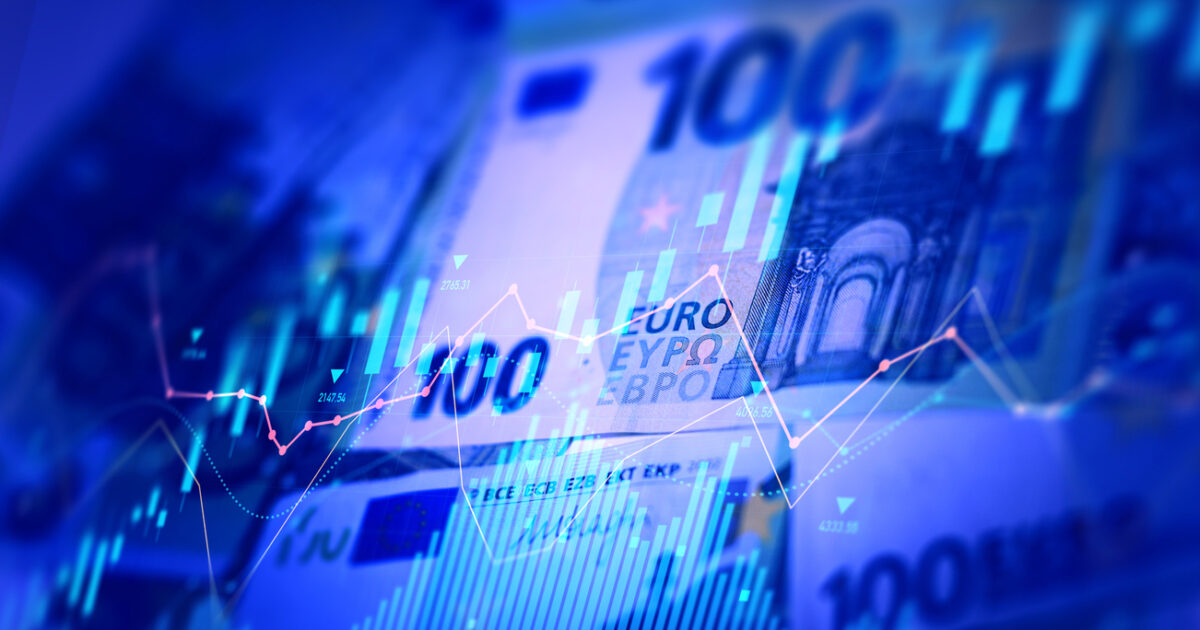Markets have largely underestimated the geopolitical danger in recent months and now fears of a wider regional conflict with what this entails for global and Greek economy and markets bonderoil and shares.
The duration and intensity of the new war between Israel and Iran will judge the magnitude of the damage that the Greek economy will suffer in a possible new energy crisis or a deterioration in bond yields.
Investors are rushing to reduce the investment risk and focusing on safe investment shelters, while raising concern is raised by rising oil and gas prices due to uncertainty in the Persian Gulf, as economies are threatened by the closure of 20% of the 20% of the Straits.
Although analysts estimate is for $ 100+/barrel price, “black gold” prices may reach $ 120 a barrel, leading to reappearance of inflationary pressures, in such a case.
Military escalation in the Middle East has caused oil prices to rise to $ 77 per barrel this week (from $ 82 that was at such a time last year), an increase of 20% compared to two weeks ago.
Minister of National Economy Kyriakos Pierrakakis hastened to point out that ignition in the Middle East does not affect TIF planning. But he pointed out that if the straits of the hormoz are closed, it would be an extremely negative impact.
As Optima Bank estimates, any increase in oil price by $ 10 per barrel can lead to a 0.4%Greek GDP reduction, while each increase in gas price by 10 euros per MWh may cause a 0.3%decline in GDP.
The Greek economy
The Greek economy has a strong growth story. The Greek economy has at least for the coming years a “free corridor” of growth in fiscal stability under the condition that there will be no greater escalation in the Middle East or other unpredictable negative developments in the troubled geopolitical environment. The Greek economy will also be in 2025, one of the first in development in the EU.
The crisis finds Greece’s budgets with 43 billion euros in cash. In 2024 it was first recorded since 2019 the conversion of the General Government’s outcome of 1.4% of GDP in 2023 to a surplus of 1.3% of GDP. The primary outcome of the General Government stood at a surplus of 4.8% of GDP, significantly exceeding the budget. These performance is a historical milestone for the budgetary data of at least the last thirty years.
At the same time, compared to the rest of the European Union (EU) countries, Greece has achieved the highest decline in debt to GDP, by 10.3 percentage points to 153.6% of GDP.
Also the execution of the budget is on a very good track. A primary surplus of 5.3 billion in the five -month state budget, with tax revenue raising $ 1,773 billion or 7% against target and costs reduced 2.7%.
Calculations at the Ministry of National Economy estimate that the 2025 budget will be closed with a surplus that will exceed 4% of GDP, higher than $ 10 billion.
Bonds
Greek bonds have been highly resistant, lately, when a worldwide “sell -off” in bond markets has occurred.
Greece, the protagonist in the bond market, highlighted analysts at Bloomberg when last month, while global markets were shaken by anxiety about expanding deficits, Greek bonds recorded rally.
The spread has fallen to 73 points and at the beginning of the year it was at 85 and 90 points. At this time the Hellenic Republic is borrowing cheaper even from Italy and about as much as France. In the US, the 10 -year state bond pays 4.38%, while only 3.317%.
With € 43 billion in cash and covering € 7.45 billion out of a total of 8 billion in the country’s annual borrowing needs, the financial staff does not “burn” to the markets, which strengthens Greek bonds.
“Taurus” for Greek bonds remains JP Morgan Bank and characterizes them as a top investment option and notes that Greek assets have strong defenses and “weapons” against international developments thanks to its strong macroeconomic trend and its 20th. In the international landscape, as well as the stable political scene.
Stock Exchange – Banks
The crisis has found the Greek Stock Exchange after a seven -month rally ( +30% DG and +60% of Banks), and the recession so far is described as controlled. As many international houses point out, despite the rise, the ATHEX remains attractive and the valuations are significant in relation to international markets.
JP Morgan includes Greece and the Greek Stock Exchange on the list of countries that have great investment opportunities if one puts a burden on market capitalization relationship in relation to Greece’s gross domestic product (GDP). Based on GDP estimate at € 240 billion in 2025, capitalization of the stock market, which amounts to € 125 billion, corresponds to a little higher than 50% of GDP.
It is now clear that investors’ reflexes become more sensitive and volatility will return.
The Greek banks, which in the past have been the “Achilles heel” of the market, are now shielded and according to Eurobank Equities notes that, despite the rally over 40% since the beginning of the year, their valuations remain non -demanding. While recognizing the increased geopolitical risks, he sees room for a further upward trend in profit upgrades.
Banks’ organic profitability remains at particularly satisfactory levels, as strong credit expansion and positive supplies revenue operate compensates for the negative impact on the net interest income of the lower interest rate environment.
According to Alpha Finance estimates, banks have additional capital margins of approximately Euro4 billion for future moves, and bank administrations are now more willing to consider acquisition movements with the aim of boosting profitability.
